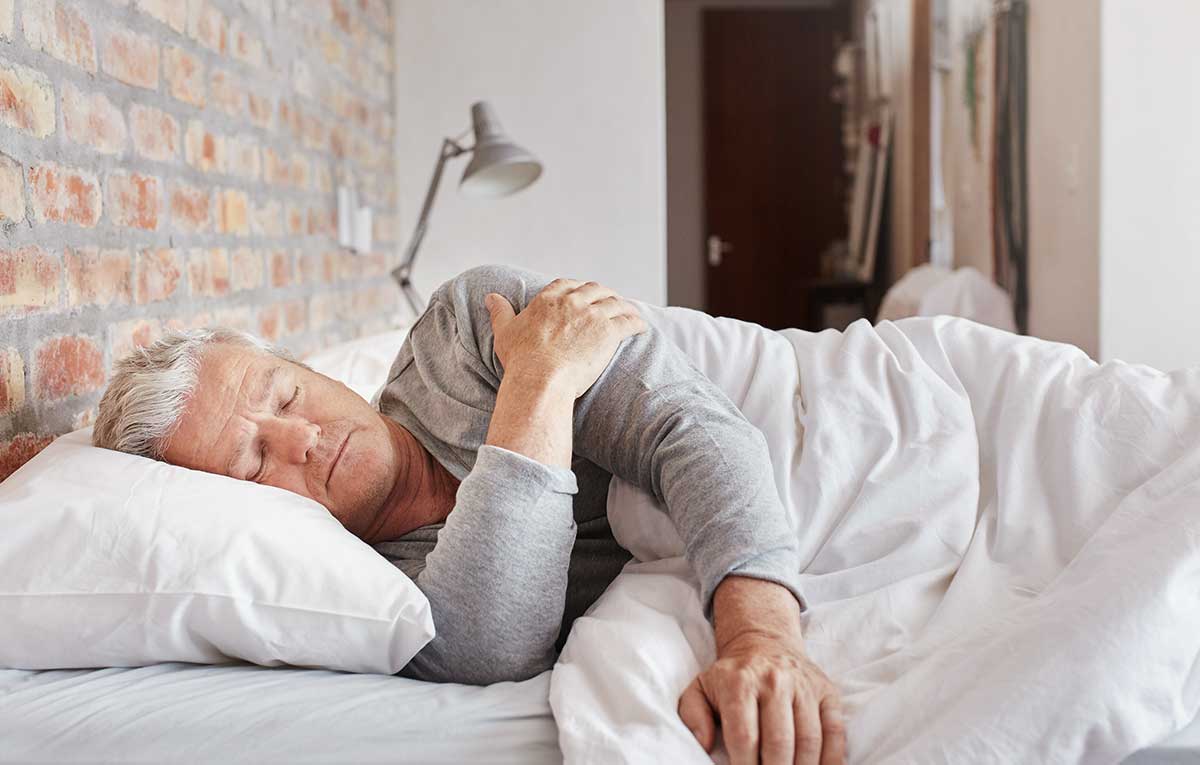Rethinking the Importance of Sleep: 5 Ways to Get More Rest
This post by Dr. Alicia H. Clark was originally published on her blog under the title “Depressed, Anxious, Unable to Focus? Getting enough sleep might do the trick – 5 tips on how.“
It’s 2 a.m. and you are awake, knowing you should have gone to sleep hours before, but nevertheless, you are awake. Sleep deprivation is ubiquitous in our modern culture – and can be something we sometimes even wear as a badge of honor even as our lack of sleep is affecting us negatively. Depression, increased anxiety, irritability, and concentration difficulties can all be tied to inadequate sleep.
And sleep studies keep coming out linking sleep with mental health, and overall physical well-being. Not only does our body appear to recover and regenerate during sleep, but so too does our brain. Recently dubbed “the brain’s housekeeper,” sleep is now understood to be critical to brain functioning. Scientists have recently discovered a tiny network of fluid-filled channels that clear toxins from brain cells – similar to our cardiovascular lymphatic system – that is only activated during sleep. According to this new discovery, for the brain to get cleaned, it must sleep.
Sleep loss can impact functioning at home, in schools, and in businesses. Sleep loss can ramp up many mental health challenges including depression and anxiety. Fatigue can mimic depression, with so many diagnostic criteria overlapping between the two, including depressed mood, changes in energy, appetite, or sleep, as well as concentration problems. Anxiety can also escalate with suboptimal sleep – who hasn’t felt that jittery feeling of not getting enough sleep? For people who are sensitive to anxiety, sleep deprivation can be particularly grueling as its effects increase anxiety, especially for worriers.
As a front line offender in today’s increasing mental illness, there aren’t many mental health symptoms that aren’t worsened by sleep loss. Fatigue’s capacity to elevate, and even masquerade as, depression can be confusing to many battling mood challenges. Studies show that shortened sleep almost doubles one’s genetic risk for depression – essentially, if someone has a relative with depression, their risk for depression doubles (from approximately 25% to 50%) when sleep is limited. Everything is harder when we don’t get enough sleep, and getting enough sleep is one of the core strategies I share with patients.
Adults are not the only ones threatened by sleep deprivation: kids who don’t get enough rest are more likely to have higher percentages of body fat and obesity, drug and alcohol abuse, and teen depression. Teens in particular are at greatest risk, with academic, social, and extracurricular demands keeping them up late, and early school start times making it hard to get the 9-10 hours per night they need to function at their best. According to a recent study, sleep deprivation may be a key precursor to depression in teens with their developing brains being acutely susceptible to habit formation and laying down habits for life. That shortened sleep in adolescence risks depression later in life underscores the critical importance of adequate sleep to teen mental and physical health. As parents, I don’t think we can get enough data on how important sleep is for our kids and teens, and yet getting adequate sleep still remains elusive for so many of us, as well as our children.
So how can you make sleep more of a priority?
- Resist the urge to push through fatigue and do that “one more thing” especially if it involves a screen. Ignoring drowsy cues is one of the ways that people condition themselves to stay awake, creating a dangerous cycle of ignoring fatigue. If you struggle to get to sleep, look for the first drowsy cue you feel, and seize it. Once you feel that fatigue, get into bed and turn off lights as soon as possible. Stave off that “second wind” and allow sleep to come.
- Sleep hygiene is another critical component of getting adequate sleep. Be mindful of stimulation levels of all sorts – visual, auditory, tactile. Prepare for rest by lowering stimulation the hour before you want to sleep. Get in comfortable clothes, turn lights down or off, turn off music, TV, computer, and prepare for bed. Slow down, and let your drowsiness take hold.
- Be particularly mindful of screens. The blue light behind most screens (other than a kindle) is the same frequency as the blue light of dawn, which has been shown to stop the production of serotonin (the neurotransmitter associated with sleep) to prepare for waking. This is the last thing anyone needs who is trying to fall asleep. Opt instead for reading without a screen, with only the most minimal light. If you must use a screen, then invest in some yellow tinted glasses that will change the light frequency to green, or download F.lux an app which will remove the blue frequency on your devices at night so as not to disrupt serotonin production.
- Getting to bed a bit earlier every night is the best way to increase sleep. Start small, aim for 10-15 more sleep minutes every night. As little as 15 more minutes a night can make a huge difference overall, adding almost two hours per week. An alarm or a digital reminder can help remind you of your identified bedtime. Most importantly, remember that a tired brain is an inefficient brain. Don’t expect that you will feel like going to bed when it is time to. It might help to remind yourself that your tired brain doesn’t make as much sense as your rested brain and therefore doesn’t make optimal decisions. Like with our children, chances are if you turn off the lights, put your head on the pillow, and close your eyes, you will fall asleep paving the way to feel more rested in the morning.
- If you have to catch up on sleep, do so where you can, but beware of “sleep marathons.” Saving sleep catch up for the weekend can inadvertently throw off sleep, and isn’t advisable in general. However, the amount of sleep is more important than what kind of sleep you get. Napping (for as little as 10 minutes) has also been shown to improve the cognitive side effects of sleep loss.
Adequate sleep boosts energy, productivity, and happiness – indeed, with enough sleep, our brains function better, which helps us maintain a positive outlook, and make healthier decisions. With so many common mental, physical, and emotional ailments being rooted in or exacerbated by something as simple as sleep loss, rethinking the importance of sleep in your life likely makes sense.
But just because it’s simple, doesn’t mean it’s easy. There are lots of reasons why we all stay up late, and changing habits like these take concerted effort, and small incremental steps. Deciding to increase your sleep is the first step to making a change. See what of the suggestions make the most sense to you, and try one. You just might be surprised at how much better you feel with a bit more sleep.

